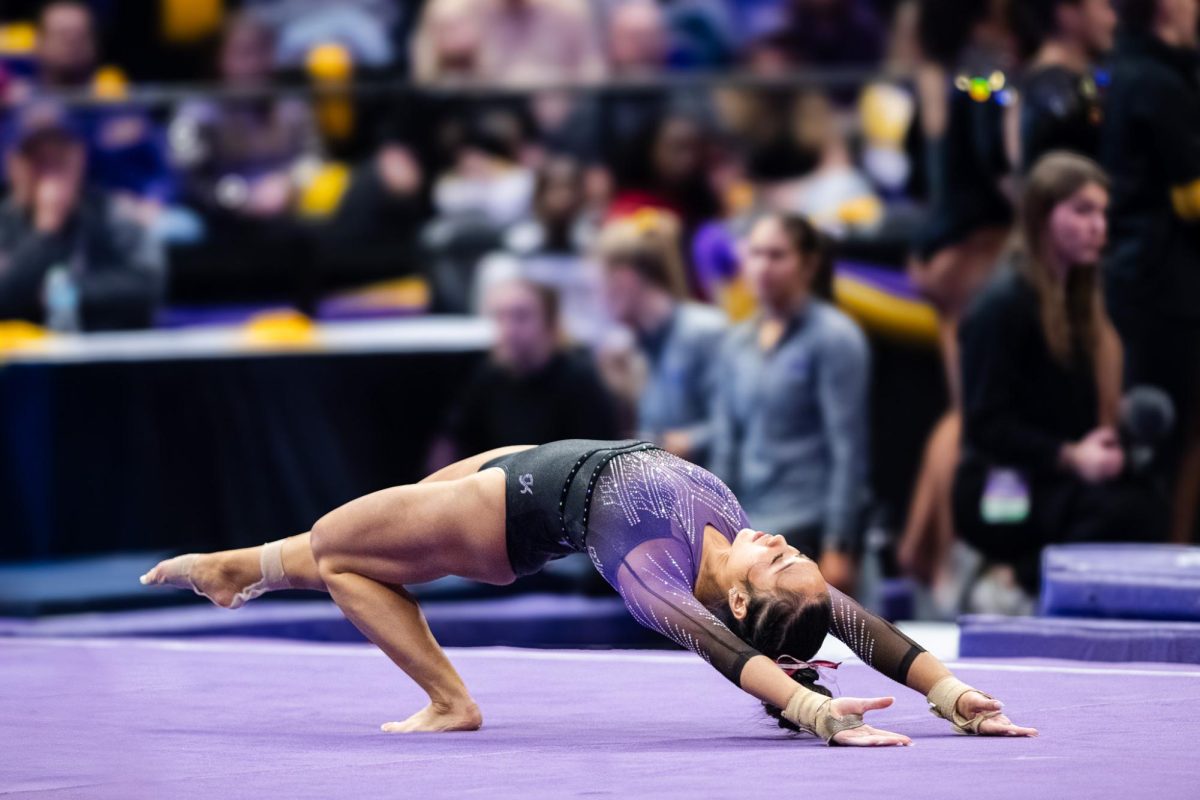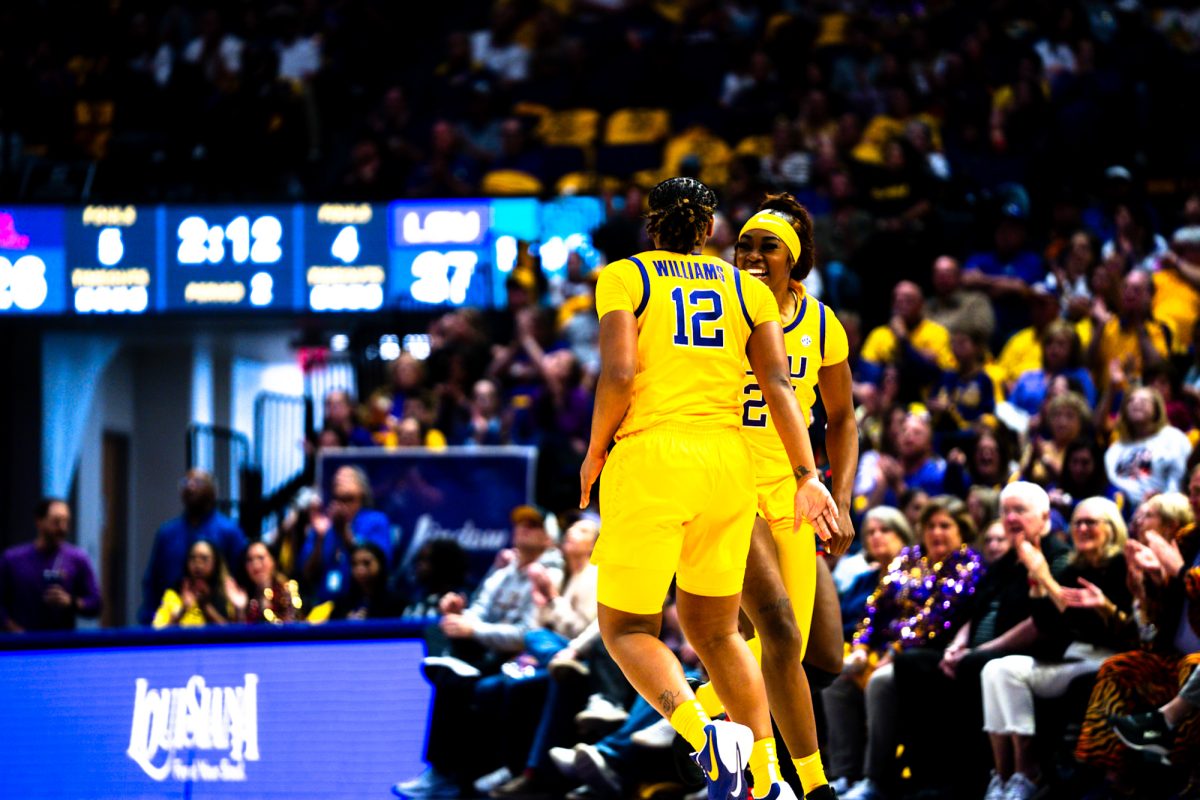Whether it’s football players looking to add muscle mass before they hit the gridiron or a wrestler hoping to make weight as he steps onto the scale before a match, weight is an important and a consistently monitored part of college athletics.While college students worry about the dreaded “freshmen 15,” the University’s Sports Medicine staff is working with each athlete, making sure that he or she is sticking with each coach’s weight program to be in peak shape for competition.Here’s a breakdown of how different sports work to monitor their weight and either bulk up or slim down before the next big game.Football’s offensive linemenIn an already heavy sport, nowhere is weight more important than along the offensive line. Redshirt junior lineman Julian Williams and the rest of the line work during the season to keep muscle mass up, lifting regularly so that muscles don’t deteriorate.”We weigh in once a week, every Sunday, to make sure we keep an eye on it,” Williams said. After the season, the coaches hand out weight programs for each player to follow. Williams said he’ll weigh himself every day in the offseason, making sure his weight is in accordance with the program, and in accordance with other standards.”Everybody wants to try to look good, get that beach body,” Williams said. “That’s more of a personal thing — try to get right.” WrestlingWrestling is a sport that is all about numbers; number of pins, number of points and number of pounds. The pounds are the most difficult for college students, and for college wrestlers it’s no different. According to wrestling coach Carter Jordan, wrestling today is healthier then when he wrestled.”It’s light years from where it was when I was in college,” Jordan said. “These guys are monitored not by the coaching staff, but by the athletic trainers.”Today, guidelines and rules are set by the NCAA, where the training staff takes a lean body fat test of each wrestler to determine the minimum weight that each individual can wrestle. To get to that minimum weight, the wrestler can only lose 1.5 percent of his body fat per week. “Some guys do cheat, but it’s really easy to spot,” Jordan said. “After the first minute they’re done, weak.”According to assistant athletic trainer Scott Armstrong the wrestlers have help every step of the way.”We have nutritionists on staff, as well as keep an eye on these guys everyday,” Armstrong said. “Especially the freshmen, we make sure they are on track before their first match, checking their hydration.”CheerleadingWeight for flyers used to be the most important deciding factor when choosing the co-ed cheerleading squad. However, rules have changed recently for just how much weight can be considered in the sport. Casey Hinson, a junior on the co-ed cheerleading team, she described the flyers to typically weigh between 95 and 125 pounds.”In the past, weight meant a lot,” Hinson said “They have rules now where our coaches can’t limit our weight or even really monitor it. You obviously want to look good in the uniform, though, when you’re in front of so many people. It’s obviously easier for the guys to stunt with smaller girls.” Hinson is a “top girl” in their stunts and pyramids. She said it is because of her weight that she gets to be on-top. Even if there are no rules for weighing a certain amount, Hinson said there have been comments made to cheerleaders in the past. “They weigh us in the very beginning of the year, but that’s just for physicals,” she said. “There have been a few instances when a coach has talked to some girls about their weight because he thought they had gained some.”The role of sports medicine While pressures to lose, gain or maintain weight can be intense in college athletics, Charles Rozanski, associate director of sports medicine, said he has not spoken to an athlete who has thought he or she was doing something unhealthy since he has been at N.C. State. “[The sports medicine staff] would be in the decision-making process if someone believed there was a medical issue involved or if there was a potential eating disorder or if someone felt very strongly that they were being asked to do something they didn’t think was healthy,” Rozanski said. According to Rozanski, health issues surrounding weight loss, particularly in wrestling, were an issue a decade ago, but NCAA regulations have eliminated the problem. Rozanski believes there is no magic weight certain athletes should strive for. “[We] make sure the person is in an optimum position to maximize their athletic ability and minimize their risk of energy,” Rozanski said. “That’s different for each team. Your offensive lineman will be very different than a gymnast. But I think the principle is still the same. Can they move themselves efficiently at the activity that they’re trying to be involved in?”
Watching their weight
November 18, 2008






